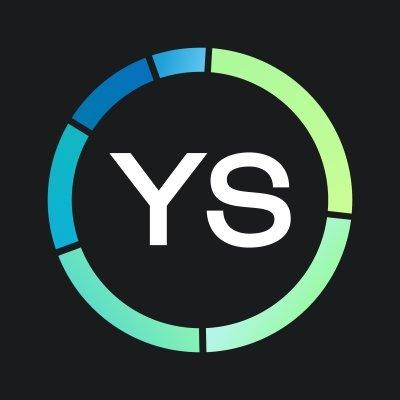Invest in multifamily rental properties
Invest in private market alternatives
Investments
$500
DiversyFund's minimum investment amounts differ by investment type. It's $500 for Growth REITs targeting multifamily properties. For accredited investors, Premier Direct SPVs require a $50,000 minimum, while the Premier Opportunity Fund has a $25,000 minimum.
Moderate Risk
3/5
Investing in DiversyFund carries risks such as market changes, economic factors, and specific property risks, and there's always the potential for loss, including the initial investment.
Moderate Risk
3/5
Yieldstreet investments, focused on high-yield, specialty lending, carry inherent risks higher than traditional investments, primarily due to the potential for borrower default.
Minimum Liquidity
1/5
DiversyFund investments are illiquid, with capital committed for approximately 5 to 7 years. There is no secondary market or immediate option for investors to sell their shares prior to the end of the investment term.
Minimum Liquidity
1/5
Yieldstreet's investments are generally less liquid, meaning they cannot be quickly sold for cash. These private market alternatives often require longer holding periods.
Receive new reviews from Fintorial
Moderate Return
11-18 %
DiversyFund has historically reported annual returns between 11% and 18%, but future returns can vary and are not guaranteed.
Moderate Return
9.6 %
The expected net annualized return (IRR) for investors on Yieldstreet is 9.6%.
Long-term Investment
5-7 years
DiversyFund's REIT I has an investment term of 5-7 years, and the company is using the full term to maximize property values before sale and subsequent investor disbursements.
Short-term Investment
6+ months
Yieldstreet's investments span time horizons from as brief as 6 months to as long as 5 years.
Who can invest
United States
DiversyFund's Growth Offerings are accessible to all investors, while its Premier Offerings are restricted to accredited investors only.
Who can invest
United States
Yieldstreet is open to U.S. persons with a valid TIN, U.S. bank account, and U.S. mailing address. Non-accredited investors can access the Alternative Income Fund, while single asset investments require accredited investor status verification.
Moderate Volatility
3/5
Real estate assets on DiversyFund can experience volatility due to market conditions, interest rates, and local economic trends, potentially impacting property values and investment performance.
Moderate Volatility
3/5
Assets on Yieldstreet, being alternative investments, often show different volatility compared to traditional markets, potentially offering less correlation with broad market swings.
Regulation and audits
SEC Regulated
DiversyFund is subject to SEC regulations and conducts regular audits to ensure financial transparency. These audits and disclosures are available for investor review as part of the company's compliance with regulatory standards.
Regulation and audits
SEC Regulated
Yieldstreet is regulated and undergoes regular audits for compliance. Its partnership with Synapse Brokerage LLC, an SEC-registered broker-dealer and FINRA and SIPC member, ensures adherence to strict financial regulations.
Insurance
Yes
DiversyFund's properties are generally insured against physical damage, but this insurance does not cover market-related losses or economic downturns, and it may not fully cover the properties' market value.
Insurance
Yes
Funds in the Yieldstreet Wallet are insured up to $250,000 by the FDIC, with deposits between $250,001 and $1 million spread across multiple FDIC-insured banks for extended coverage.
Payouts
No Recurring Payouts
DiversyFund generally reinvests dividends into property renovations rather than distributing them, supporting a strategy aimed at long-term asset appreciation.
Payouts
Dividends
Yieldstreet offers varied dividend or interest payment structures: fixed income investments provide monthly payments at a target yield, diversified portfolios offer quarterly target yields, and art investments yield returns upon sale, all subject to specific terms and potential annualized net returns.
Withdrawals
Investors in DiversyFund can receive their money back after the properties are sold, typically at the end of a 5 to 7-year investment term, without an early withdrawal option.
Withdrawals
Investors on Yieldstreet receive distributions directly into their Yieldstreet Wallet and can withdraw these funds to their bank account as desired.
Extra Fees
Yes
DiversyFund collects asset management fees and transaction fees, and may also earn a promote interest from net profits after investors receive their returns.
Extra Fees
Yes
Yieldstreet's fees include a range from 0% to 2.5% annual management fees, structured notes incur a 1.25% annual management fee plus a $150 annual fund expense, the Yieldstreet Alternative Income Fund charges a 1.0% annual management fee and up to a 0.5% annual administrative expense.
Taxes
Tax Form
DiversyFund provides Form 1099-DIV and/or Form K-1 for tax reporting, accessible online, with dividends taxed as ordinary income and end-of-term distributions potentially as capital gains.
Taxes
Tax Form
Yieldstreet issues either a K-1 or 1099 form for tax purposes, based on the legal structure of the investment, with details provided on the offering page and in downloadable documents when new offerings are launched.

